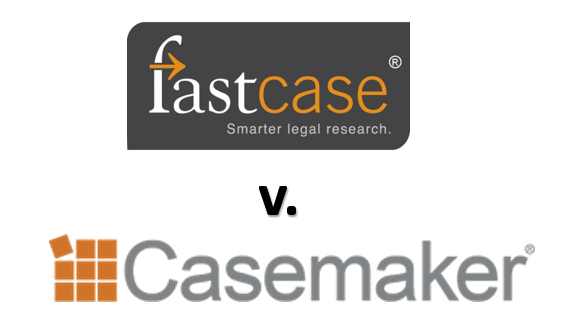The ongoing legal battle between Fastcase and Casemaker over the latter’s claims of copyright in Georgia administrative regulations has taken a notable turn as the 11th U.S. Circuit Court of Appeals ruled today that the lower court erroneously granted summary judgment in favor of Casemaker. The three-judge panel remanded the case to the District Court for further proceedings.
In 2016, Fastcase sued Casemaker in federal court in Atlanta after Casemaker served it a written notice demanding that it remove Georgia administrative rules and regulations from its research collection. Casemaker’s parent company, Lawriter, has an agreement with the Georgia Secretary of State designating it as the exclusive publisher of the Georgia Rules and Regulations and giving it the right to license that content to other publishers.
After the court dismissed that lawsuit without prejudice in January 2017, Fastcase filed a second complaint against Casemaker in February 2017. Casemaker filed a motion to dismiss that second lawsuit. In July 2017, the court granted the motion to dismiss, concluding that it lacked subject-matter jurisdiction because Casemaker had never registered a copyright in the Georgia regulations, and also concluding that it lacked jurisdiction because because Fastcase failed to satisfy the amount-in-controversy jurisdictional minimum of $75,000.
District Court Erred
Ruling today on Fastcase’s appeal of that decision, the 11th Circuit said that the District Court’s rulings were erroneous on both points.
On the issue of subject-matter jurisdiction, the 11th Circuit said that, while copyright registration under § 411 of the Copyright Act remains a precondition to filing a claim, the lack of copyright registration does not restrict a federal court’s subject-matter jurisdiction.
Because § 411(a)’s registration requirement is not jurisdictional, the District Court here had jurisdiction over the suit despite the fact that Lawriter had not registered a copyright in the Georgia Regulations. Accordingly, the District Court erred in dismissing Fastcase’s complaint for lack of federal-question jurisdiction.
As to the amount-in-controversy issue, the circuit agreed with the District Court that Fastcase had failed to meet its burden of showing by a preponderance of the evidence that its failure to deliver Georgia regulations would result in termination of its contract with the Georgia Bar.
However, the circuit sided with Fastcase in its argument that its potential liability for violating Casemaker’s copyright was not too speculative to satisfy the amount-in-controversy requirement. Fastcase argued that to maintain its contract with the Georgia Bar, it would have to copy the Georgia regulations from the Secretary of State’s website on a daily basis, and that each act of copying would potentially be a copyright violation subjecting it to liability for liquidated damages of $20,000 per occurrence.
The circuit court further ruled, contrary to the holding of the District Court, that Fastcase’s potential liability could be used as a basis for satisfying the amount-in-controversy requirement.
Here, Fastcase must access the Georgia Regulations “at least daily, and possibly thousands of times every day” to maintain a current database of Georgia law. Every time it accesses the Georgia Regulations, Fastcase exposes itself to $20,000 of liquidated liability. The “immediate financial consequence[],” … of the declaratory judgment Fastcase seeks is that it would no longer be subject to this liability. Consequently, we conclude that the amount-in-controversy requirement is satisfied and diversity jurisdiction is proper.
The case will now be returned to the District Court for further proceedings and possibly trial.
Reaction to the Opinion
“Now we get to reach a decision on the merits, and establish that private companies can’t accomplish with a clickwrap terms of service contract what they can’t in copyright,” Fastcase CEO Ed Walters said in an email this afternoon. “Private companies can’t own public law, even if they make clickwrap contracts that try to confer the rights of ownership.”
“In light of the Eleventh Circuit’s opinion in the Public.Resource.org case earlier this month, it seems clear that Casemaker can’t create any more private ownership through clickwrap contracts than LexisNexis or the Code Commission could through copyright,” Walters said.
I have reached out to Casemaker for comment but have yet to hear back.
Read the full opinion: Fastcase v. Casemaker, No. 17-14110 (11th Cir. 10/29/18).
 Robert Ambrogi Blog
Robert Ambrogi Blog